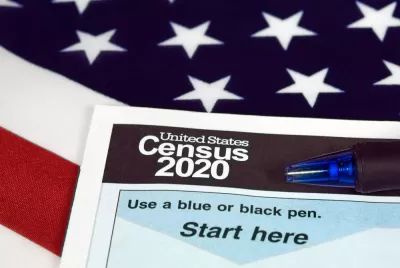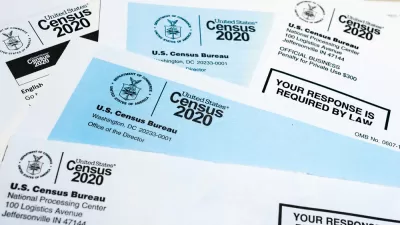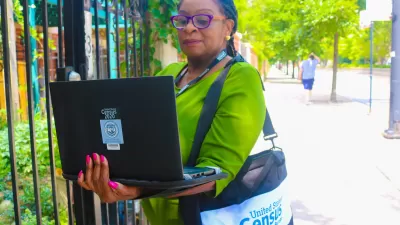The U.S. Census Bureau offers a variety of data and tools that can be used by policy-makers and the public to better understand underserved communities and advance equity.

Recognizing the need for data to improve planning and service delivery, the U.S. Census Bureau produces data that depict an accurate portrait of America, including its underserved communities. Some of the data equity services highlighted in this article include:
-
Demographic Data: The Census Bureau offers data by key demographic variables such as race, ethnicity, sex, disability, income, and veteran status to help measure equity. These data are often by geography, which provides meaning and context to the statistical data, and can identify rural and underserved communities. Users are encouraged to explore demographic data with data tools such as data.census.gov.
-
Data Tools: The Census Bureau has developed a variety of data tools that help the public and policy-makers understand the issues surrounding inequities and enable them to develop and propose effective, data-based solutions.
-
Public Assistance Program Metrics: Census Bureau data can provide metrics to show public assistance programs’ progress and outcomes.
-
Diversity Measurement: The Census Bureau uses several approaches to measure the racial and ethnic diversity of the U.S. population, including the Diversity Index, prevalence rankings, the diffusion score, and a series of prevalence maps.
-
Data Education: A major part of the Census Bureau's mission is to educate the public, policy makers, and stakeholders on what data they have available and how to use them. To empower data users with understandable, accurate, and timely information and the knowledge to use it, the Census Bureau invites users to:
- Explore the online Census Academy for upcoming webinars and on-demand data training.
- Browse the Data Equity Library with its online collection of equity-related data visualizations, infographics, photos, audio, video, working papers and more.
For more information, please read the source article.
FULL STORY: Advancing Equity with Data

Alabama: Trump Terminates Settlements for Black Communities Harmed By Raw Sewage
Trump deemed the landmark civil rights agreement “illegal DEI and environmental justice policy.”

Planetizen Federal Action Tracker
A weekly monitor of how Trump’s orders and actions are impacting planners and planning in America.

Why Should We Subsidize Public Transportation?
Many public transit agencies face financial stress due to rising costs, declining fare revenue, and declining subsidies. Transit advocates must provide a strong business case for increasing public transit funding.

Understanding Road Diets
An explainer from Momentum highlights the advantages of reducing vehicle lanes in favor of more bike, transit, and pedestrian infrastructure.

New California Law Regulates Warehouse Pollution
A new law tightens building and emissions regulations for large distribution warehouses to mitigate air pollution and traffic in surrounding communities.

Phoenix Announces Opening Date for Light Rail Extension
The South Central extension will connect South Phoenix to downtown and other major hubs starting on June 7.
Urban Design for Planners 1: Software Tools
This six-course series explores essential urban design concepts using open source software and equips planners with the tools they need to participate fully in the urban design process.
Planning for Universal Design
Learn the tools for implementing Universal Design in planning regulations.
Caltrans
Smith Gee Studio
Institute for Housing and Urban Development Studies (IHS)
City of Grandview
Harvard GSD Executive Education
Toledo-Lucas County Plan Commissions
Salt Lake City
NYU Wagner Graduate School of Public Service





























